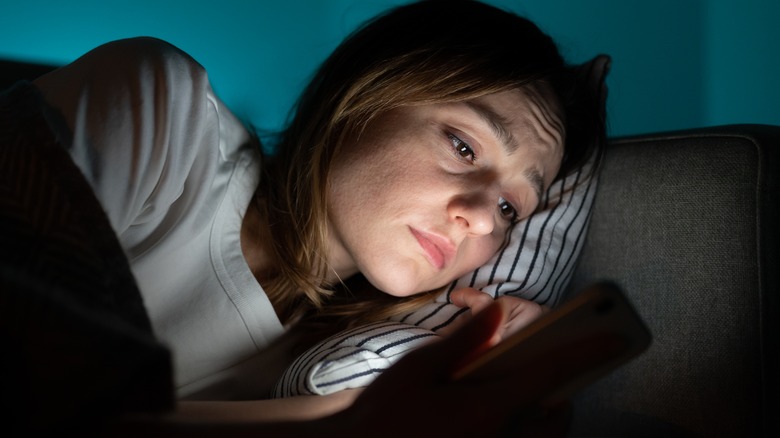Where are you on the Big Five? Psychologists use the Five-Factor Model to describe elements of your personality using five traits, according to Psych Central.
One factor is extraversion, which describes how you respond to social situations. Agreeableness is how caring or helpful you are towards others. Scoring low on this trait points to stubbornness, competitiveness, or selfishness.
If you’re organized and goal-oriented, you probably score high on conscientiousness. Neuroticism refers to insecurity or moodiness, and openness pertains to your creativity and how interested you are in doing new things.
A 2024 study in the Journal of Affective Disorders Reports looked at how these Big Five types might interact with social media use to influence your risk for depression. The study relied on past research that found those who score high on neuroticism are more likely to experience mental health issues, while extraversion can guard people against mental health conditions in some cases. Because people who are more agreeable exhibit prosocial behavior, they tend to pose a lower risk for depression.
The study tracked 978 adults aged 18-30 for six months after measuring their personalities using the Five-Factor Model. They also kept track of their social media habits and measured depression using the Patient Health Questionnaire.
Increased social media use relates to depression

Regardless of how people scored along the Big Five traits, the study found that using social media more often is associated with a higher risk for depression. People who use social media for more than 196 minutes per day are more likely to develop depression than people who engage less than 120 minutes per day.
Although personality types didn’t interact with the association between social media use and the risk of depression, certain personality types were connected to depression. People who scored higher in neuroticism were twice as likely to develop depression in six months than those who scored low on this personality trait. People high in the agreeableness trait, which reflects caring and compassion for others, showed a lowered risk of developing depression compared to those who are more competitive toward others.
Even if you know your score is high on neuroticism and you use social media a lot, digital detoxes can help. Although a 2024 systematic review in Mobile Media and Communication determined that digital detoxes can affect well-being differently, digital detoxes may help improve mental health.
If you or someone you know needs help with mental health, please contact the Crisis Text Line by texting HOME to 741741, call the National Alliance on Mental Illness helpline at 1-800-950-NAMI (6264), or visit the National Institute of Mental Health website.

